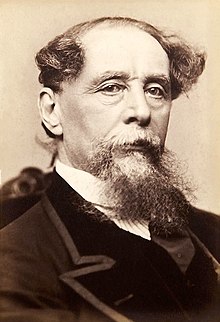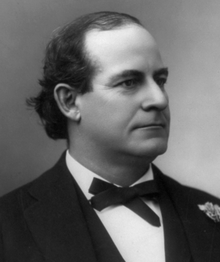June 9 is the 160th day of the year (161st in leap years) in the Gregorian calendar. There are 205 days remaining until the end of the year.
Holidays
- Anniversary of the Accession of King Abdullah II (Jordan)
- Autonomy Day (Åland Islands)
- Christian feast day:
History
In 411 BC, The Athenian coup succeeds, forming a short-lived oligarchy.
In 53, The Roman Emperor Nero marries Claudia Octavia.
In 68, Nero, Roman emperor (b. 37) dies, after quoting Homer’s Iliad, with the help of his private secretary, Epaphroditos, thus ending the Julio-Claudian Dynasty and starting the civil year known as the Year of the Four Emperors. He (Latin: Nero Claudius Caesar Augustus Germanicus ) was Roman Emperor from 54 to 68, and the last in the Julio-Claudian dynasty. Nero was adopted by his great-uncle Claudius to become his heir and successor, and succeeded to the throne in 54 following Claudius’ death. Nero focused much of his attention on diplomacy, trade, and enhancing the cultural life of the Empire. He ordered theaters built and promoted athletic games. During his reign, the redoubtable general Corbulo conducted a successful war and negotiated peace with the Parthian Empire. His general Suetonius Paulinus crushed a revolt in Britain. Nero annexed the Bosporan Kingdom to the Empire and began the First Roman–Jewish War. In 64 AD, most of Rome was destroyed in the Great Fire of Rome, which many Romans believed Nero himself had started in order to clear land for his planned palatial complex, the Domus Aurea. In 68, the rebellion of Vindex in Gaul and later the acclamation of Galba in Hispania drove Nero from the throne. Facing execution as a public enemy, he committed suicide on 9 June 68 (the first Roman emperor to do so). His death ended the Julio-Claudian Dynasty, sparking a brief period of civil wars known as the Year of the Four Emperors. Nero’s rule is often associated with tyranny and extravagance. He is known for many executions, including that of his mother, and the probable murder by poison of his stepbrother Britannicus. He is infamously known as the Emperor who “fiddled while Rome burned” and as an early persecutor of Christians. He was known for having captured Christians to burn them in his garden at night for a source of light. This view is based on the writings of Tacitus, Suetonius, and Cassius Dio, the main surviving sources for Nero’s reign. Few surviving sources paint Nero in a favorable light. Some sources, though, including some mentioned above, portray him as an emperor who was popular with the common Roman people, especially in the East. Some modern historians question the reliability of ancient sources when reporting on Nero’s tyrannical acts.
In 721, Odo of Aquitaine defeats the Moors in the Battle of Toulouse.
In 1311, Duccio‘s Maestà Altarpiece, a seminal artwork of the early Italian Renaissance, is unveiled and installed in the Siena Cathedral in Siena, Italy.
In 1534, Jacques Cartier is the first European to discover the Saint Lawrence River.
In 1650, The Harvard Corporation, the more powerful of the two administrative boards of Harvard, is established. It is the first legal corporation in the Americas.
In 1667, The Raid on the Medway by the Dutch fleet in the Second Anglo-Dutch War begins. It lasts for five days and results in the worst ever defeat of the Royal Navy.
In 1732, James Oglethorpe is granted a royal charter for the colony of the future U.S. state of Georgia.
In 1762, British forces begin the Siege of Havana and capture the city during the Seven Years’ War.
In 1772, The British schooner Gaspée is burned off the coast of Rhode Island.
In 1798, Irish Rebellion of 1798: Battle of Arklow and Battle of Saintfield.
In 1815, End of the Congress of Vienna: the new European political situation is set.
In 1856, Five-hundred Mormons leave Iowa City, Iowa, and head west for Salt Lake City carrying all their possessions in two-wheeled handcarts.
In 1862, American Civil War: Stonewall Jackson concludes his successful Shenandoah Valley Campaign with a victory in the Battle of Port Republic; his tactics during the campaign are now studied by militaries around the world.
In 1863, American Civil War: Battle of Brandy Station, Virginia.
In 1870, Charles Dickens, English author and critic (b. 1812) dies after suffering another stroke at his home after a full day’s work on Edwin Drood. He was an English writer and social critic. He created some of the world’s most memorable fictional characters and is generally regarded as the greatest novelist of the Victorian period.During his life, his works enjoyed unprecedented fame, and by the twentieth century his literary genius was broadly acknowledged by critics and scholars. His novels and short stories continue to be widely popular. Born in Portsmouth, England, Dickens was forced to leave school to work in a factory when his father was thrown into debtors’ prison. Although he had little formal education, his early impoverishment drove him to succeed. Over his career he edited a weekly journal for 20 years, wrote 15 novels, five novellas and hundreds of short stories and non-fiction articles, lectured and performed extensively, was an indefatigable letter writer, and campaigned vigorously for children’s rights, education, and other social reforms. Dickens sprang to fame with the 1836 serial publication of The Pickwick Papers. Within a few years he had become an international literary celebrity, famous for his humour, satire, and keen observation of character and society. His novels, most published in monthly or weekly instalments, pioneered the serial publication of narrative fiction, which became the dominant Victorian mode for novel publication. The instalment format allowed Dickens to evaluate his audience’s reaction, and he often modified his plot and character development based on such feedback. For example, when his wife’s chiropodist expressed distress at the way Miss Mowcher in David Copperfield seemed to reflect her disabilities, Dickens went on to improve the character with positive features. His plots were carefully constructed, and Dickens often wove in elements from topical events into his narratives. Masses of the illiterate poor chipped in ha’pennies to have each new monthly episode read to them, opening up and inspiring a new class of readers. Dickens was regarded as the literary colossus of his age. His 1843 novella, A Christmas Carol, is one of the most influential works ever written, and it remains popular and continues to inspire adaptations in every artistic genre. Set in London and Paris, his 1859 novel, A Tale of Two Cities, is the best selling novel of all time. His creative genius has been praised by fellow writers—from Leo Tolstoy to George Orwell and G. K. Chesterton—for its realism, comedy, prose style, unique characterisations, and social criticism. On the other hand Oscar Wilde, Henry James and Virginia Woolf complained of a lack of psychological depth, loose writing, and a vein of saccharine sentimentalism. The term Dickensian is used to describe something that is reminiscent of Dickens and his writings, such as poor social conditions or comically repulsive characters.
In 1873, Alexandra Palace in London burns down after being open for only 16 days.
In 1885, A peace treaty is signed to end the Sino-French War, with China eventually giving up Tonkin and Annam – most of present-day Vietnam – to France.
In 1900, Birsa Munda, an important figure in the Indian independence movement, dies in a British prison under mysterious circumstances.
In 1915, William Jennings Bryan resigns as Woodrow Wilson’s Secretary of State over a disagreement regarding the United States’ handling of the sinking of the RMS Lusitania.
In 1923, Bulgaria’s military takes over the government in a coup.
In 1924, In the second attempt to climb Mount Everest, George Mallory and Andrew “Sandy” Irvine disappear, possibly having first made it to the top.
In 1928, Charles Kingsford Smith completes the first trans-Pacific flight in a Fokker Trimotor monoplane, the Southern Cross.
In 1930, A Chicago Tribune reporter, Jake Lingle, is killed during rush hour at the Illinois Central train station by Leo Vincent Brothers, allegedly over a $100,000 gambling debt owed to Al Capone.
In 1934, Donald Duck makes his debut in The Wise Little Hen.
In 1944, World War II: 99 civilians are hung from lampposts and balconies by German troops in Tulle, France, in reprisal for maquisards attacks.
In 1944, World War II: the Soviet Union invades East Karelia and the previously Finnish part of Karelia, occupied by Finland since 1941.
In 1946, King Bhumibol Adulyadej ascends to the throne of Thailand. He is currently the world’s longest reigning monarch.
In 1948, Foundation of the International Council on Archives under the auspices of the UNESCO.
In 1953, Flint-Worcester tornado outbreak sequence: a tornado spawned from the same storm system as the Flint tornado hits in Worcester, Massachusetts, killing 94.
In 1954, McCarthyism: Joseph Welch, special counsel for the United States Army, lashes out at Senator Joseph McCarthy during hearings on whether Communism has infiltrated the Army giving McCarthy the famous rebuke, “You’ve done enough. Have you no sense of decency, sir, at long last? Have you left no sense of decency?”
In 1957, First ascent of Broad Peak by Fritz Wintersteller, Marcus Schmuck, Kurt Diemberger, and Hermann Buhl.
In 1958, Queen Elizabeth II officially opens London Gatwick Airport, (LGW) in Crawley, West Sussex, United Kingdom.
In 1959, The USS George Washington is launched. It is the first submarine to carry ballistic missiles.
In 1965, The civilian Prime Minister of South Vietnam, Phan Huy Quat, resigns after being unable to work with a junta led by Nguyen Cao Ky.
In 1965, Vietnam War: The Viet Cong commences combat with the Army of the Republic of Vietnam in the Battle of Đồng Xoài, one of the largest battles in the war.
In 1967, Six-Day War: Israel captures the Golan Heights from Syria
In 1968, The U.S. President Lyndon B. Johnson declares a national day of mourning following the assassination of Senator Robert F. Kennedy.
In 1972, Severe rainfall causes a dam in the Black Hills of South Dakota to burst, creating a flood that kills 238 people and causes $160 million in damage.
In 1973, In horseracing, Secretariat wins the Triple Crown.
In 1974, Portugal and the Soviet Union establish diplomatic relations.
In 1978, The Church of Jesus Christ of Latter-day Saints opens its priesthood to “all worthy men”, ending a 148-year-old policy of excluding black men.
In 1979, The Ghost Train Fire at Luna Park Sydney (New South Wales, Australia) kills seven.
In 1985, Thomas Sutherland is kidnapped in Lebanon. He will not be released until 1991.
In 1999, Kosovo War: the Federal Republic of Yugoslavia and NATO sign a peace treaty.
In 2006, 60th Anniversary Celebrations of Bhumibol Adulyadej‘s Accession.
In 2007, In horseracing, Rags to Riches was the first filly in 106 years to win the Belmont Stakes Belmont Stakes.
In 2008, In the town of Lake Delton, Wisconsin, Lake Delton drains as a result of heavy flooding, breaking the dam holding the lake back.
In 2009, An explosion kills 17 people and injures at least 46 at a hotel in Peshawar, Pakistan.
In 2010, At least 40 people are killed and more than 70 others are wounded as an explosion rips through an evening wedding party in Arghandab, Kandahar.
In 2015, The Southern Front of the Free Syrian Army claims to have captured a major Syrian Army base known as Brigade 52 in Daraa Governorate.








